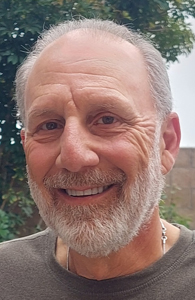Reflections On Equity
Gary Zinik
“Mom and Dad, there’s something I need to tell you, and you better sit down.” I was packing for a business trip and my thoughts were elsewhere when my 16 year-old son made this announcement. It was the “you better sit down” that caught my attention. I stopped what I was doing and sat on the sofa next to my wife. We waited. He was nervous and avoided eye contact. Finally he blurted out, “I’m gay.” I had an immediate sense of relief, and I think my wife did too. We were not surprised.
We had already had private discussions about the possibility that our son was gay. In fact, by the time he came out to us he already had a boyfriend (the man he would later marry). That night the three of us hugged and cried. My son was greatly relieved by our acceptance, admitting that he feared condemnation and rejection. Understandably so. LGBT kids often suffer inner turmoil over the decision to come out to their parents. When they have the courage to do so, many get judged harshly and at worst are expelled from home and lose the love and support they need the most. My daughter, on the other hand, dated boys in high school and had a couple significant relationships. However, after tagging along with her brother to gay parties and Pride festivals (maybe they were more fun), she “crossed over” and started dating girls. She has since married a woman.
By the time my kids were both in college, Proposition 8 (which banned gay marriage in California) was ruled unconstitutional, and the national campaign for Married Equality was in full swing. The Unitarian Universalist Church was on the forefront of that campaign, embodied by the slogan “SIDING WITH LOVE” emblazoned on their signature yellow T-shirts. Since my family personally had a lot at stake in that campaign (how many families have two gay kids?), I felt compelled to do something, and started a local chapter of PFLAG.
Founded in 1972, PFLAG is the first and largest organization in the county that provides support, education, and advocacy to parents, friends, and allies of the lesbian, gay, bisexual, transgender and queer community. Beginning in 2012, Ventura PFLAG met monthly at UUCV. These were free, open support group meetings that were attended primarily by parents adjusting to the news they had an LGBTQ member of the family. We sat in a circle and took turns telling our stories. I learned to bring a box of tissues, since tears were common. But so was laughter, and it seemed miracle moments of deeper understanding happened regularly at the meetings. The world would be a better place if every family everywhere that’s adjusting to accepting a loved one as queer could attend a PFLAG meeting.
In 2017, PFLAG moved to the Community Resource Center, where it continues to meet on the 4th Tuesday of the month at 7:00pm, in person and on Zoom. Please email pflag.ventura.ca@gmail.com for more information. Also see www.diversitycollectivevc.org, and www.plfag.org. The mission of the UUCV Equity Ministry is to develop new understanding of power dynamics and learn new skills and new behaviors to build a more compassionate, aware, and equitable church community.




